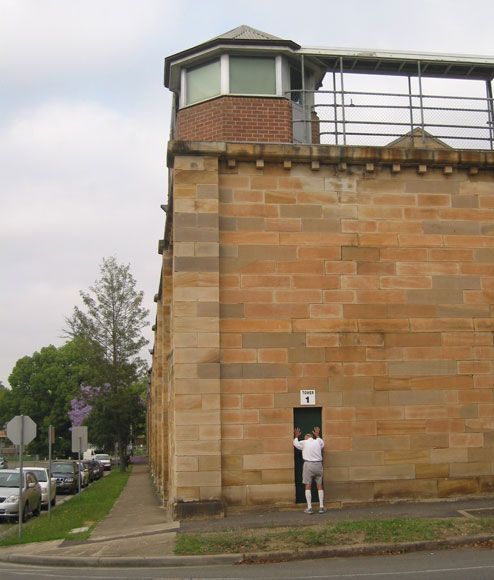On one hand, i have long been a proponent of identifying corrective options other than imprisonment. That is not simply a function of my employment (criminal defence lawyer) - rather, my experience with the system has shown me that an alarmingly small number of offenders are "bad".
The typical criminal offender is not evil. Childhood abuse, social dysfunction, drug abuse and resulting mental deficiency - these are the trends that defence lawyers see in serious offenders.
That is not to say that people should not be imprisoned - many offenders are a danger to the community. Others need to be rehabilitated. Moreover, the community needs to know that if you commit a serious offence then you risk a term of imprisonment.
But that does not mean that many people who end up in gaol could not be dealt with in another way that produces a better result for the community.
An example is the chronic kleptomaniac, who is far better dealt with by a referral into treatment rather than time in prison.
Unfortunately, a large proportion of the community has a fundamental misunderstanding about the conduct of the criminal justice system, fueled mostly by talk-back radio.
 |
| Perhaps this is a little mean. On the other hand, perhaps it is 100% accurate. |
 |
| The survey can be found here, but please don't complete it. |
Of course, as I wrote about here, they promptly ruined all their good work by enacting life sentences for cop killers. As I said then though, given the offence remains extremely rare it will not have an appreciable impact on inmate numbers.
In any event, I am hopeful that the government will continue to investigate alternatives to imprisonment for offenders. Whilst periodic detention was abolished last year (a decision I disagree with) it appears that Intensive Corrections Orders (info about them here, if you're interested), which were introduced in its place, have been a success to date.
I hope that NSW will not follow Victoria's lead in abolishing suspended sentences. A suspended sentence is a manifestly useful and frequently appropriate sentencing option, and its abolition would inevitably lead to an increase in inmate numbers.
With the abolition of periodic detention numbers last year, those persons on Periodic Detention Orders are slowly leaving the system as their sentences end and they are not replaced by new offenders.
As of January 2011 (the most recent figures I have easy access to) approximately 1500 inmates were serving periodic detention. Compared to a full-time custody total of approximately 10 000 inmates, that is a significant portion that is now being weaned out of the system.
Even if some people who would previously have been getting periodic detention are now been imprisoned full time, that is still a large number of spaces opening up. The obvious implication is that it may be necessary and prudent to reduce capacity. Any reduction in capacity will lead to a fall in staffing.
In fact, at the time that periodic detention was abolished, I accused the then Labor government making the changes, at least in part, because it would be a cheaper option.
Of course, there are two sides to the argument. The government has spoken to the unions to "foreshadow wide budget cuts". The Herald is reporting that Parramatta, Tamworth and Berrima may all close.
 |
| Parramatta Gaol. Photo from here |
The opposition are already speaking: shadow attorney-general Paul Lynch was quoted in the Herald as saying that ''Fewer prison staff must mean prisons will be less safe. If the cuts cause longer prisoner lockdowns, then they'll make prisons even harder to manage.''
Hopefully the unions will be able to come up with a better argument than this, from Public Service Association general secretary John Cahill: "It's all about money, not rehabilitating inmates ... which is a good short-term approach but when they get out they're more cranky and they're more likely to reoffend."
It's hard to imagine a sillier analysis - I'm no criminologist, but I suspect that you would find that "ex-inmate crankiness" is pretty low on the list of causes of crime.
In any event, this all comes as the government continues its tussle with Fred Nile over ethics classes, which looks more likely to become a major problem if this tweet from @marktobinsydney is to be believed:
With a little luck, the government will be able to cut through the rhetoric on correctional services with some numbers about prison populations and the fact that there is simply excess capacity in the system.
A commitment that conditions at the prisons (for staff and inmates) will not be negatively affected should go a long way to assuaging concerns. Of course, whether that is a commitment they can make is another question.
What O'Farrell will be desperately hoping is that this does not become another front he has to fight, as it seems likely that he is going to have his hands fairly full in the months to come.

No comments:
Post a Comment